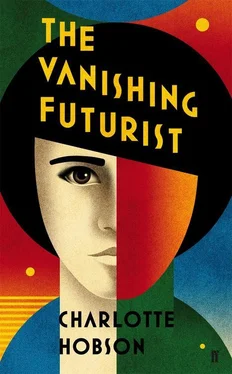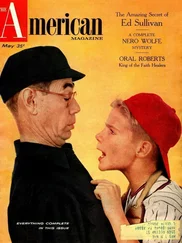We all stopped talking; Fyodor did not usually raise his voice like this, or shake with agitation. ‘We are not here to chatter!’
‘Calmly,’ murmured Slavkin.
Fyodor paced up and down. He didn’t meet Slavkin’s eye. ‘Your approach, Nikita, is – is subjective. It’s all wrong. I mean, I don’t want to offend you, but I think you’re going about things completely stupidly.’ He frowned. ‘The psychological approach, the self-criticisms – it just leads to talk and more talk. Your work is your affair, but the narcotics, well, to my mind that’s just some kind of mysticism.’
Slavkin seemed taken aback. ‘Well,’ he said at last. ‘It is easy for anyone to paint the room black. What do you suggest? Let’s see how you’d go about it!’
‘We need discipline and efficiency, above all. Self-control. This is the most important transformation. We are getting waylaid by every sort of nonsense. “Don’t be distracted” – that’s what you say, isn’t it, Nikita? The Taylorisation of our daily lives is what we need.’
F. W. Taylor, the father of the ‘scientific management’ of work, was Fyodor’s great hero.
‘Oh, Lord!’ sighed Slavkin impatiently. ‘All that is the work of clerks ! We’re searching for revelations! Haven’t I already explained to you many times that in order to penetrate the mysteries of the human soul one must move obliquely, subtly – it’s no good approaching it as if it were a steam engine.’
Sonya nodded, and they smiled at each other.
But Dr Marina interrupted, ‘No, Nikita. You’ve had your own way for too long. It’s becoming an autocracy. Fyodor, you should write out a programme for us. Propose it at our meeting tomorrow, and we’ll vote on it.’
‘Thank you, Doctor. I will,’ replied Fyodor, surprised at this unexpected support.
I glanced at Dr Marina; she was frowning, her face set.
As it was already midnight, we prepared to sleep: washing our faces in a pail of tepid water that had been sitting on the stove and spitting out our toothpowder into a slop basin. In the morning it would have frozen into beautiful spirals. We stepped around the figure of Nikita who sat, sulky and unmoving, in his position to the right of the stove. I suspect the others felt as I did, embarrassed and irritated that he should take this minor challenge to his authority so hard. After some time he turned abruptly to Sonya and murmured something to her. They stood up and, without saying a word to the rest of us, dressed in their outdoor clothes and left the room. We heard the outer door open and close with a thump.
I lay on my mattress very still, very still. A burning sensation inside me caused my chest to pump up and down and my face to contort with pain. A couple of hours passed before Nikita and Sonya returned. They had allowed themselves to get chilled, and spent a long time trying to warm up by rubbing their hands and feet until Marina asked them very sharply to be quiet.
During my long walk to and from work that day I decided that I would vote for Fyodor. It was not an easy decision. But Nikita’s petulant expression of the night before came back to me, and the childish way he had refused to speak and then led Sonya out of the room.
Having already made up my mind, I was surprised and impressed when Fyodor stood up and made his suggestions for the Taylorisation of the commune. He was articulate and passionate, and went into extraordinary detail. I put my hand up immediately we were called upon to vote. Ivan and Nina were performing that whole week, otherwise I suppose it might have gone differently. When I saw Dr Marina’s arm go up, and Volodya’s, followed by Vera’s, I glanced involuntarily at Nikita. The look he gave me, of utter misery and disbelief, was like a slap.
‘Congratulations, comrade,’ he said hoarsely, bowing his head. ‘I look forward to starting on your course of work. I assume, however, that you are happy for me to keep working on my projects in my studio?’
‘Yes indeed, comrade,’ Fyodor replied, flushed with victory. ‘That is something the whole commune will need to agree on, of course.’
‘We agree,’ I spoke up immediately. ‘Or rather, let’s vote. I agree – Marina, Volodya, Vera?’
‘Yes, yes,’ they nodded hurriedly. The atmosphere in the room was strained, only Fyodor was cheerful. Slavkin sat like a figure of stone.
‘Well, good; to implement the efficiency measures, then…’ began Fyodor.
As we turned to listen, out of the corner of my eye I saw Sonya’s hand creeping into Nikita’s. He enveloped it with his own.
No hierarchy – for goodness’ sake, the phrase had become a cliché in our discussions on the structure of the commune! No specialisation – the regular reassignment of all roles, by timetable – so that no one becomes comfortable in a position of authority. We had deferred to Nikita precisely because he had presented us with a vision of egalitarianism; surely he understood that? I was enraged with all of us, including myself, but much more so with Nikita. If you can’t adapt, can’t control your pride, your emotions, how can you expect the same of the rest of us? Unsaid, my thoughts chased each other around my brain long into the night.
* * *
A new stage began in the IRT. We decided on measures to occupy and oversee every minute of a communard’s day. I reproduce here a copy of the timetable that we painted up on the meeting-room wall, above the fireplace:
Daily Timetable
Comrades Please Note: All Activities Are Compulsory.
A Gong Will Be Struck For Each New Activity.
6 a.m. Wake up. Wash and dress
6.15 Model T exercises
6.35 Breakfast
7.00 Clear away breakfast
7.15 Clean teeth
7.25 Put on outdoor clothes
7.30 Leave for place of work
6 p.m. Dinner
6.30 Clear away dinner
6.40 Household chores as allotted by rota
8.30 Analysis of time cards
9.30 Other business
10.30 Retire to dormitories
11.00 Lights out
Full Punctuality, Full Rations!
Remember – Each Minute Wasted Is a Gift to Rockefeller!
Time cards were issued to each of us to record the events of our day, which we were meant to study each evening for possible savings. Every week, one member was given the responsibility of striking the gong to announce each new activity of the day.
There were some good points to the new regime. The mornings were dark and getting out of bed in the damp air of our dormitory was certainly made more bearable by the morning Model T exercises, which Nina had now expanded to include a series of Hungarian dances, very rhythmic and cheerful. Meanwhile Anna Vladimirovna was delighted by the timetable, which seemed to remind her of her childhood. ‘That boy is just like my father,’ she would hiss as Fyodor bustled about with a notebook. ‘Terrible bossyboots!’ Even the constant ringing of the gong, which infuriated all the other inhabitants of the house, pleased the old lady; apparently her father had ordered the church bells to be rung in the village each time he won at backgammon. It was hard, on the other hand, on poor Mamzelle, whose chest infection was worse and who longed only to be allowed to sleep.
We all became more punctual, particularly when poor Vera’s ration was reduced after she took too long scouring the pots. It did seem harsh to leave her bowl empty while we munched away at our bean porridge on either side of her. Her eyes filled with water and she bit her lip. A little colour rose in Fyodor’s cheeks and he chewed slowly and deliberately, looking everywhere but at her face.
Now the evening meetings began with our daily efficiency reports. Dr Marina, for example, might report an increase in the productivity of her ironing – she had ironed ten shirts in only twenty-five minutes, rather than the thirty-five it had taken her last time. Fyodor would sit on the edge of his seat, fidgeting with excitement. ‘Good! Now tell us, how did you achieve this? Did you have a different method? Perhaps you can demonstrate this method to us? Imagine if all over the world ironing speeds are increased by over 20 per cent!’
Читать дальше





![Майкл Муркок - Спящая волшебница / The Sleeping Sorceress [= Участь Белого Волка, Рыцарь Хаоса, The Vanishing Tower]](/books/327544/majkl-murkok-spyachaya-volshebnica-the-sleeping-sorc-thumb.webp)






